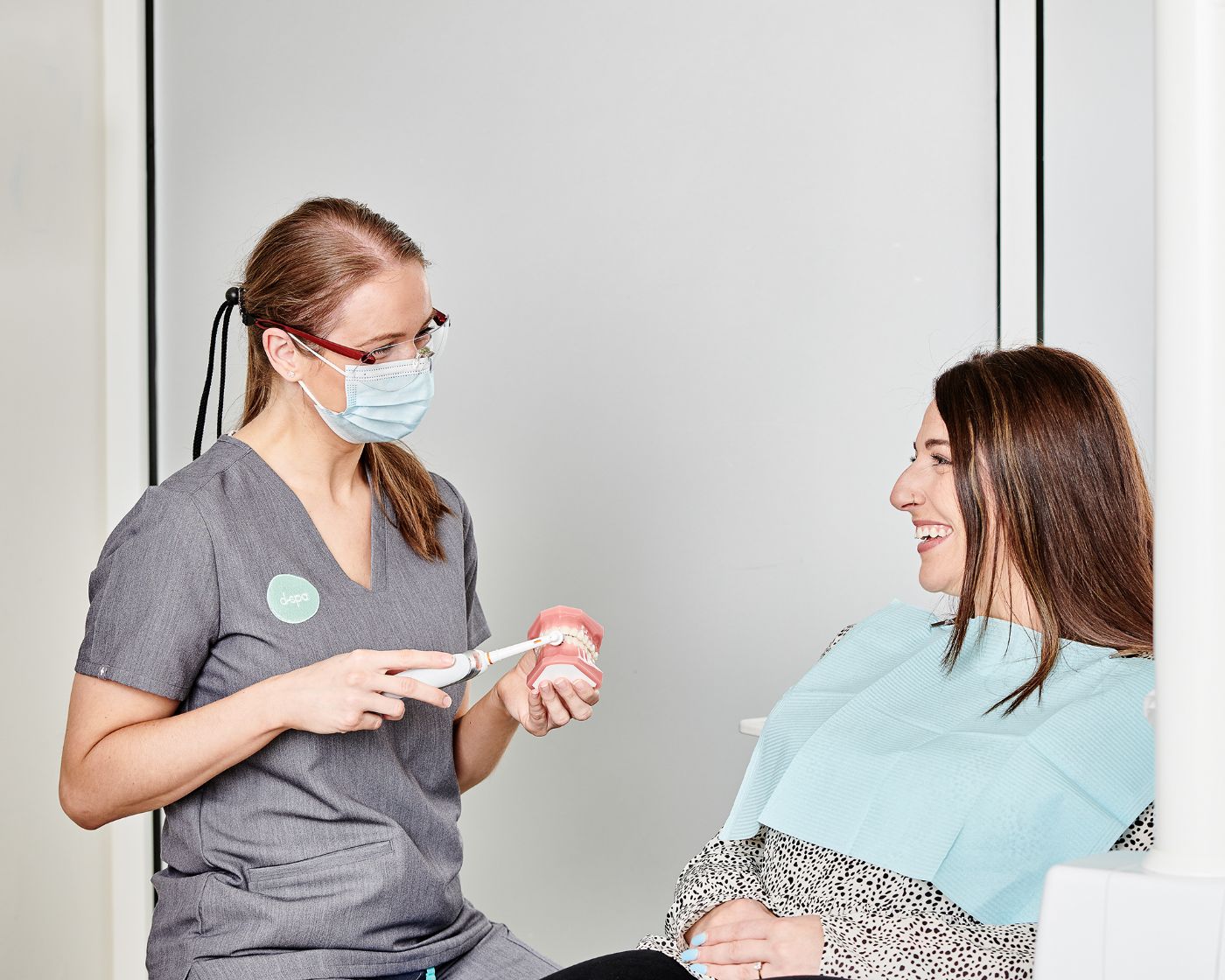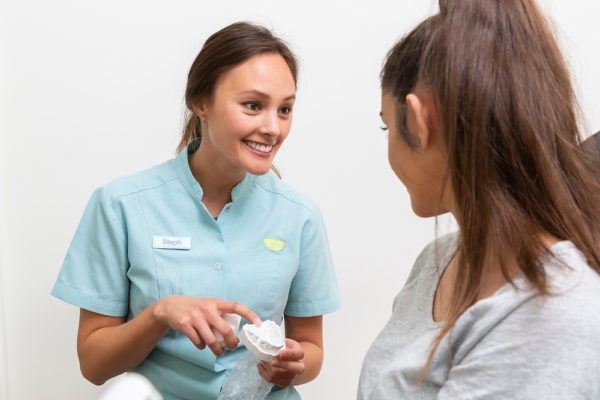Preventive dentistry
If it’s been six months or longer since your last dental visit, you may be due for a check-up and professional clean. Call us on (03) 9650 0870 or contact us online to book a preventive care appointment at our Melbourne clinics on 2 Collins Street, 538 Collins Street or Toorak Road, South Yarra.

What is preventive dentistry?
Prevention is often better than cure when it comes to your teeth. Through preventive dentistry, we focus on trying to treat, mitigate or outright prevent health problems such as tooth decay and periodontal (gum) disease. We also offer treatments to help protect your teeth from accidental injury.
At d-spa, we recommend a three-step approach to preventive dentistry:
- Following good oral hygiene every day
- Regular check-ups with your dentist
- Preventive treatments to help protect your teeth
Oral hygiene
Preventive dental care is something you do every day, when you brush and floss your teeth and choose teeth-friendly food and drinks that won’t encourage plaque.
A good oral hygiene routine means:
- brushing your teeth at least twice a day
- flossing between your teeth every day
- using an alcohol-free mouthwash
- avoiding sugary and acidic food and drink
- not smoking
- visiting your dentist twice a year for a check-up.
If you or your child need some help with your daily oral hygiene routine, we can show you the right way to brush and floss your teeth, make dietary recommendations, and provide dental care products to help you keep plaque at bay.

Dental check-ups
Regular check-ups with our dentists and hygienists are an important part of preventive care.
Because oral health problems can sometimes develop quickly, we’ll usually recommend that you visit us once every six months. However, if you have an ongoing problem, or you’re at higher risk of tooth decay or gum disease, we may recommend more frequent visits every 3 or 4 months so we can monitor your progress more closely.
During your check-up, we’ll give you a thorough oral health assessment to check your teeth, gums and soft tissues in your mouth. This may involve dental x-rays to help us spot any problems that can’t be seen with the naked eye. If we do find any problems, we’ll discuss treatment options with you.
One of our professional hygienists will also scale and polish your teeth to remove any plaque that may have accumulated on your teeth since your last visit.
Fissure sealants
The biting surfaces of your teeth have narrow grooves that can trap food and bacteria. These grooves can be difficult to brush, which means plaque can develop and lead to tooth decay and cavities. Children and teenagers tend to be especially vulnerable, as their teeth are still developing and are softer than most adult teeth.
Fissure sealants are plastic coatings that can be applied by our dentists to fill in these grooves, forming a physical barrier that protects the tooth’s surface against food, bacteria and plaque acids. This treatment is non-invasive, and we’ll check the condition of the sealant each time you visit us for your regular check-up.
Preventive treatments
If you or your child are at higher risk of developing tooth decay or gum disease, or you take part in activities that could put your teeth at risk of injury, we’ll discuss preventive treatments with you. These treatments are designed to help strengthen and protect your teeth.
Mouthguards
Taking part in sports can be a great way to stay active. However, contact sports and other outdoor activities are also a common cause of dental injuries, from chips and cracks to knocked-out teeth. That’s why we recommend wearing a custom-fitted mouthguard to help protect and cushion your teeth and reduce the risk of serious injuries.
A custom-fitted mouthguard offers greater protection than a generic store-bought mouthguard, as we’ll design it to fit right over your teeth. Custom mouthguards can also last longer and may be a more comfortable option.
Have you had a dental emergency?
If you have a dental emergency—either severe pain requiring root canal (also known as endondontic treatment) or a lost tooth—call our surgery straight away and we’ll do our best to find a time to see you.
